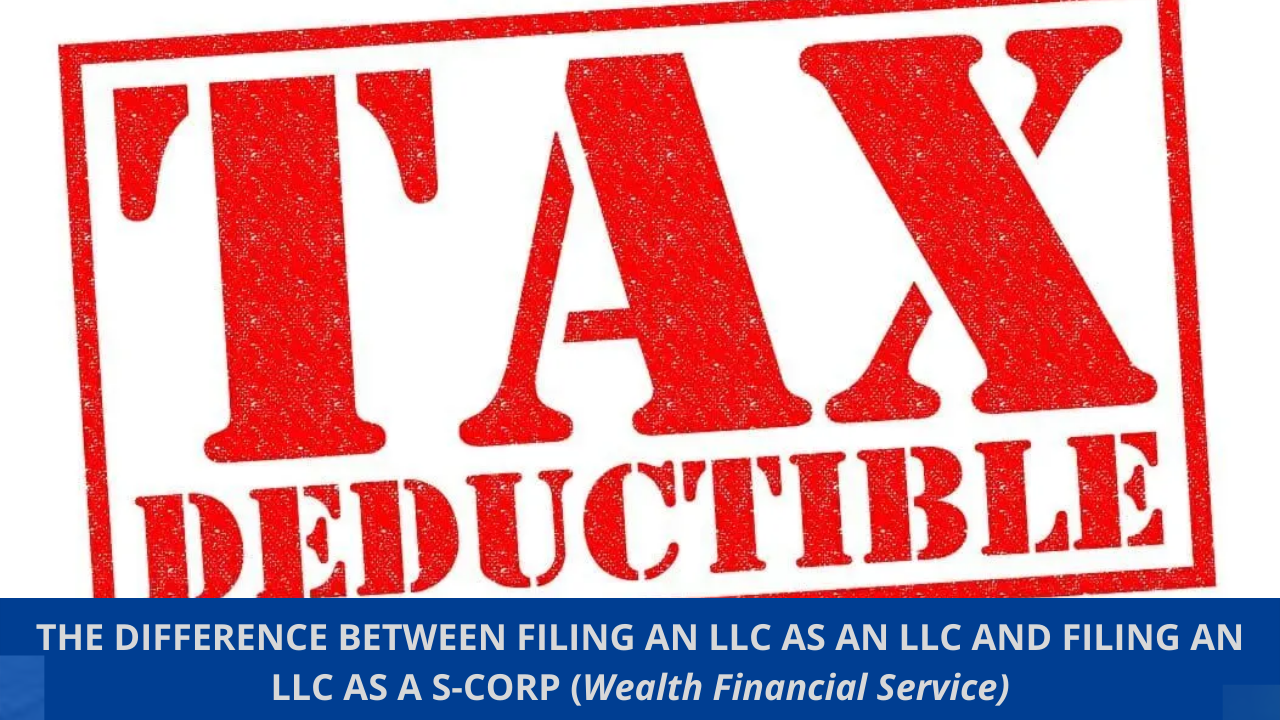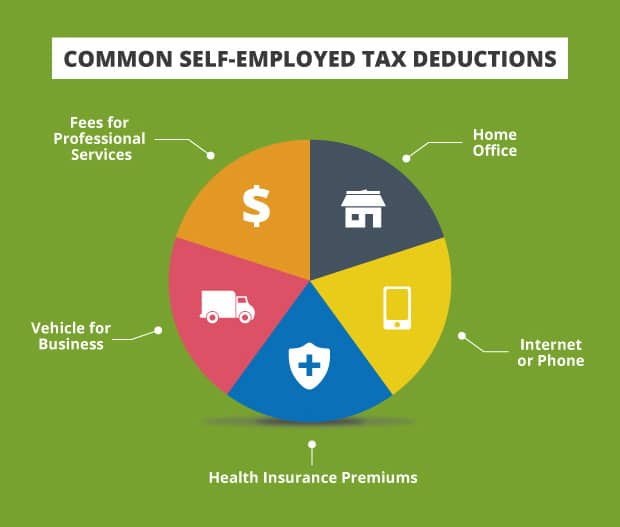
THE DIFFERENCE BETWEEN FILING AN LLC AS AN LLC AND FILING AN LLC AS A S-CORP
LLC and S Corporation are not mutually exclusive but different aspects of doing business. S corporations (subchapters/ pass-through tax entities) and Limited liability companies (LLCs) are often discussed together, though this is misleading. You can use this guide to clarify the difference between filing an LLC as an LLC and filing an LLC as an S-Corp to make the best decision for your business.
S-Corp. Filing
For an entity to file as an S-Corp, form 2553 needs to be filed with the IRS. Within 60 days of forming a corporation, the officer of the corporation needs to fill out form 2553 and fax it to the IRS. When the IRS receives this form, they’ll treat this entity as an S-Corporation.
S CORPORATION TAX
S corporations may choose to pass through the corporation’s credits to its shareholders, losses, deductions, and profits for purposes of federal tax. S Corporation shareholders will report a stream of loss and income on their own tax returns. Consequently, the taxes levied will be computed based on the tax rates on personal income. The pass-through feature aids the S corporations to prevent double taxing. This entails corporate income will be taxed at the company level. And dividend income that is being paid to shareholders is taxed again on your self-income tax return. To file their taxes, Form the 1120S is used by S corporations. A taxation document used in reporting dividends, loss, and income for S corp shareholders is referred to as form 1120S.
WHAT S-CORPORATION WRITES OFF ON TAXES
Utilities and business use of one’s house
You can use a corporate accountable plan to reduce the cost of maintaining your home office. Your S corporation pays you for the use of the home office through the corporate accountable plan. This is done through payroll as a tax-free reimbursement of employees’ business expenses. General repairs, utilities, Property taxes, and mortgage interest are some of the allowable reimbursable expenses.
Internet and cell phones:
The mobile phone that is always in your hand or by your side now has a business purpose. You can create a separate line specifically for your business. Internet costs are business deductions too in today’s digital world.
Mileage, Vehicles, and Other Transportation:
You can now use automotive mileage if you drive around to meet clients or pick up materials and supplies. The IRS allows you to deduct actual costs like miles driven throughout the year, repairs and maintenance, or fuel. You can also deduct the cost of Lyft, public transportation, taxis, and Uber.
Insurance
You want to protect the business assets that you work so hard to grow as a business owner. Business liability insurance is a tax-deductible expense. And there are amazing tax benefits available that you can take advantage of when you pay for health insurance for your family, your employees, and yourself.
LLC TAXES
An LLC allows you to avoid taxes through business losses. Profits pass through the business and instead are recorded on the owner’s personal tax return. As a result, profits are then taxed on the owner’s personal tax returns. Single-member LLCs are generally taxed as sole proprietorships. Each owner will report losses and profits on their personal tax return in a multi-owner LLC and they will be taxed like a partnership.
WHAT AN LLC WRITES OFF ON TAXES
LLC company profits are passed on to members in the form of income. A variety of deductions reduce your business’s gross income. In general, an LLC may deduct expenses necessary to operate the business, for example, office equipment, rent, wages, costs of production, and home office deductions.
Taxes and Other Fees
Remember that many other taxes paid by your business can be deducted, as are tax filing costs when filing your federal income tax return. Local income and State taxes are deductible. If you’ve employees, you can reduce the portion of Medicare and Social Security taxes your employer pays per employee, and even salary expenses.
Office space cost
The expenses of renting or leasing office space can be deducted as a business expense. You may not get a long-term property benefit. For instance, you can reduce the rent paid monthly for a store rented under a one-year contract, but not the property that you are renting to own as a rental cost.
Large Purchases and Equipment
huge purchases of corporate equipment, for example, machinery, vehicles, or computers, are deductible costs, however, they must lose value over a specified time frame using a method approved by IRS.
WHY LLC OWNERS FILE AS S CORPORATION
By default, LLCs are taxed as partnerships or sole proprietorships. Owners are regarded as self-employed and have to report their business expenses and income on their tax returns. Any part of the owner’s earnings is open to individuals (Social Security and Medicare), state, and federal taxes. If the tax rate on self-employment is 15.3%, then you have to pay 15.3% on all your earnings up to your maximum annual contribution for social security. Some LLC owners may save money on self-employment taxes by filing as an S corporation. As an S-Corporation owner, you can pay yourself a regular salary by becoming an employee of the company. Your paycheck is still subject to Social Security and Medicare taxes, but not to any corporate gains that exceed your paycheck.
Scenario
Let’s say for example you are the sole proprietor of an LLC making $100,000 in annual profit. And let’s say $70,000 is a reasonable wage in your area for a person doing the same job as you. Under standard LLC taxes, you pay the self-employment tax on your total income of $100,000. However, if your company is taxed as S Corporation, you only pay employment tax on your salary of $70,000. The remaining $30,000 is not subject to Social Security or Medicare taxes but still liable to income tax.
Conclusion
While there are many different approaches to filing taxes, tax planning is overlooked in business strategy. Most business owners don’t incorporate tax planning and profit and loss meetings monthly and quarterly. It’s always important to consult with a licensed professional before making any changes to your company policies. Contact us today, at Wealth Financial Services & Products at 754-202-2300 or visit our Get a Quote, email us at info@wealthfinancialservice.com and we will be happy to start a conversation on how we can best serve your needs. We’re here to help!

With an IUL you can change your life and the life of your future generations
IUL is a type of permanent life insurance, that comes with a cash value component in addition to a death benefit. The money in these cash-value accounts earns annual compound interest based on a stock market index chosen by your insurers, such as the S&P 500 or the Nasdaq Composite.
This means, your money is not in the stock market and you will never lose your principal funds in your account, no matter what happens in the stock market (Because of a 0% floor).

Get your Free Consultation Today
Related Articles
Long Term Care Insurance
Long-Term Care Insurance Long-term care insurance policies are becoming more popular as people realize the need to prepare for their future care needs. Here are some important things to consider when evaluating long-term care policies. The Cost of Long-Term...
Understanding Your Annual Tax Bill to the IRS
Understanding Your Annual Tax Bill to the IRS As a responsible citizen, understanding your annual tax bill to the IRS is crucial. Not knowing how much you pay in taxes could lead to missed opportunities to save money, or worse, IRS penalties. In this post,...
Living Benefits
Living Benefits Rider: The New Insurance Policy You Need Are you tired of paying for insurance that only covers you after you pass away? It's time to consider a new policy that offers living benefits riders, at no extra cost. Living benefits provide policyholders...
Stay Up to Date With The Latest News & Updates
Shipping a Car?
Looking for Auto Transport Services? Look no further. Contact Mission Auto Transport at
Join Our Newsletter
Follow Us




